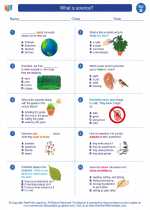Dispersal in Science
Dispersal in science refers to the movement of individuals from their original location to another location, often to establish a new population. It is a crucial concept in understanding how living organisms spread and colonize new areas. Dispersal can occur through various mechanisms, including wind, water, animals, and even human activities.
Types of Dispersal
There are several types of dispersal:
- Wind Dispersal: Some plants and seeds have adapted to be carried by the wind. They may have structures such as wings or parachutes to help them travel long distances.
- Water Dispersal: Seeds and small organisms can be dispersed by water, allowing them to travel along rivers, streams, and oceans to new locations.
- Animal Dispersal: Animals can play a significant role in dispersing seeds, spores, and even other animals. This can happen through ingestion, attachment to fur or feathers, or unintentional transport by animals.
- Human Dispersal: Human activities, such as trade and transportation, can also lead to the dispersal of organisms to new areas, often resulting in the introduction of non-native species.
Importance of Dispersal
Dispersal is essential for the survival and evolution of species. It allows organisms to find new habitats, escape competition, and colonize new environments. It also plays a critical role in maintaining genetic diversity within populations and contributes to the overall biodiversity of ecosystems.
Study Guide
Here are some key points to remember about dispersal:
- Define dispersal and explain why it is important for living organisms.
- Identify and describe the different mechanisms of dispersal, including wind, water, animals, and human activities.
- Discuss the impact of dispersal on the distribution of species and the formation of new populations.
- Explore examples of dispersal in different organisms and ecosystems, and how they have adapted to facilitate movement to new locations.
- Examine the role of dispersal in the conservation of biodiversity and the management of invasive species.
Understanding dispersal is fundamental to comprehending the dynamics of ecosystems and the interconnectedness of living organisms across different habitats.
.◂Science Worksheets and Study Guides Second Grade. What is science?

 Worksheet/Answer key
Worksheet/Answer key
 Worksheet/Answer key
Worksheet/Answer key
 Worksheet/Answer key
Worksheet/Answer key
 Vocabulary/Answer key
Vocabulary/Answer key
